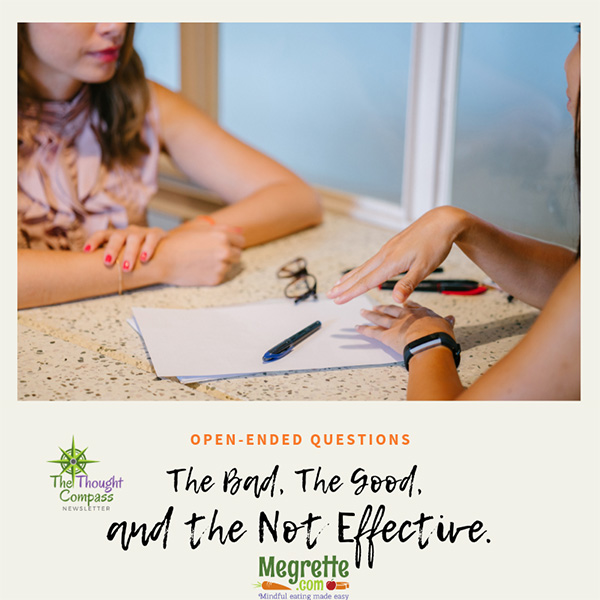
Open-ended questions are a way to obtain information from a client that prevents a ‘yes’ or ‘no’ response. For example, “Did you eat breakfast?” isn’t an open-ended question but “What did you have for breakfast?” is a better-phased question and in MI, using OEQ’s whenever possible is the preferred form of inquiry.
Asking closed-ended questions isn’t ‘bad’ but unfortunately, this type of question shifts the focus away from the client. For example, changing the closed-ended question, “Are there three people in the house?” To, “How many people are in the home with you?” or “How many people are you typically cooking for each day?” provides the client with a greater opportunity to describe their unique living and eating situation. Other examples include, “Are you taking your insulin as prescribed?” is changed to “Can you describe any barriers to taking your insulin?” or “In a week, what are the things that stop you from taking your diabetes medication?”
Next, become aware of how often you are leading the conversation, and how often you are listening to the client. It is suggested to ask OEQ sparingly. If you are wondering if there is a number of OEQ to ask in a session, the answer is no. However, OEQ’s are just one part of the OARS mnemonic which is Affirmations, Reflections, and Summaries. Shifting the focus from solely obtaining information so you can complete a clinical assessment, to creating a relationship can help. This shift, which is part of the Spirit of MI, tells to the client that you are here for them. They aren’t a number or a ‘problem’ that needs fixing. Truly seeing our clients as a person, with feelings that can be acknowledged and affirmed will elevate every patient interaction, improving the effectiveness and building trust.
Using OEQ’s during your next patient encounter is an effective way to gain information that is often not disclosed. OEQ are used in a strategic way to avoid creating an integration-like counseling session. After you have asked an OEQ, remember to use the rest of the OARS mnemonic, which is to Affirm, Reflect, and Summarize.

